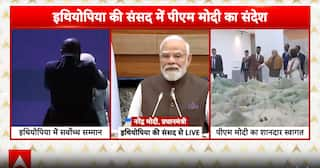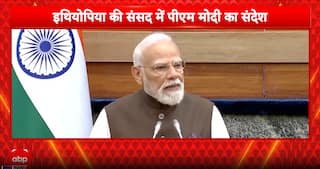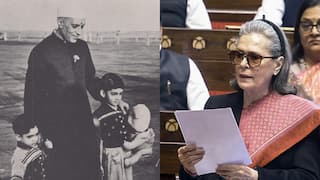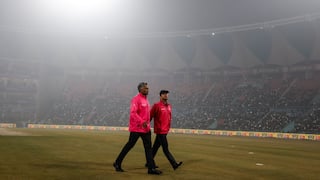Chandrayaan-3 Will Carry The Hopes And Dreams Of Our Nation; July 14, 2023, Will Be Etched In Golden Letters: PM Modi
Prime Minister mentioned some technical details of Chandrayaan-3, including the fact that the spacecraft will venture into the lunar transfer trajectory after performing orbit raising manoeuvres.

Chandrayaan-3: A few hours ahead of the launch of Chandrayaan-3, India's third lunar exploration mission, Prime Minister Narendra Modi said on Twitter that July 14, 2023, the launch date of the mission, will always be etched in golden letters as far as India's space sector is concerned, and that the 'remarkable' mission will carry the hopes and dreams of our nation.
In the same thread, the prime minister also mentioned some technical details of Chandrayaan-3, including the fact that the spacecraft will venture into the lunar transfer trajectory after performing orbit raising manoeuvres. The spacecraft will cover a distance of 300,000 kilometres, and reach the Moon in the coming weeks, he wrote.
Chandrayaan-3 will be inserted into the Lunar Transfer Trajectory after the orbit raising maneuvers. Covering over 300,000 km, it will reach the Moon in the coming weeks. Scientific instruments onboard will study the Moon’s surface and enhance our knowledge. pic.twitter.com/xCcUW4GbBH
— Narendra Modi (@narendramodi) July 14, 2023
Chandrayaan-3 also carries several scientific instruments which will study the Moon's surface and 'enhance our knowledge', the prime minister said.
Praising scientists, Modi said that India has a very rich history in space sector. He also wrote that since Chandrayaan-1, India's first lunar exploration mission confirmed the presence of water on the Moon, it is considered to be a path breaker among global lunar missions. Chandrayaan-1 has featured in more than 200 scientific publications across the globe, Modi wrote.
Thanks to our scientists, India has a very rich history in the space sector. Chandrayaan-1 is considered to be a path breaker among global lunar missions as it confirmed the presence of water molecules on the moon. It featured in over 200 scientific publications around the world. pic.twitter.com/DIUxYQcJxd
— Narendra Modi (@narendramodi) July 14, 2023
He also said that tilk Chandrayaan-1, the Moon was believed to be a bone-dry, geologically inactive and uninhabitable celestial body, but now, it is seen as a dynamic and geologically active body with the presence of water and sub-surface ice. "Maybe in the future, it can be potentially inhabited!"
Till Chandrayaan-1, the moon was believed to be a bone-dry, geologically inactive and uninhabitable celestial body. Now, it is seen as a dynamic and geologically active body with the presence of water and sub-surface ice. Maybe in the future, it can be potentially inhabited!
— Narendra Modi (@narendramodi) July 14, 2023
After this, the prime minister appreciated the Chandrayaan-2 mission, and wrote that India's second lunar exploration mission was equally pathbreaking because data from the mission's orbiter detected the presence of chromium, manganese and sodium on the lunar surface for the first time. He said that all this will provide insights into the magmatic evolution of the Moon.
Chandrayaan-2 was equally pathbreaking because data from the Orbiter associated with it detected the presence of chromium, manganese and sodium for the first time through remote sensing. This will also provide more insights into the moon’s magmatic evolution. pic.twitter.com/K1KP7Yyvm5
— Narendra Modi (@narendramodi) July 14, 2023
Modi mentioned the most important scientific outcomes from Chandrayaan-2. These include the first-ever global map of lunar sodium, enhanced knowledge on crater size distribution, and unambiguous detection of lunar surface water ice, among others. The prime minister wrote that Chandrayaan-3 has been cited in almost 50 publications.
The key scientific outcomes from Chandrayaan 2 include the first ever global map for lunar sodium, enhancing knowledge on crater size distribution, unambiguous detection of lunar surface water ice with IIRS instrument and more. This Mission has featured in almost 50 publications.
— Narendra Modi (@narendramodi) July 14, 2023
At the end of the thread, Modi extended his best wishes for Chandrayaan-3.






































